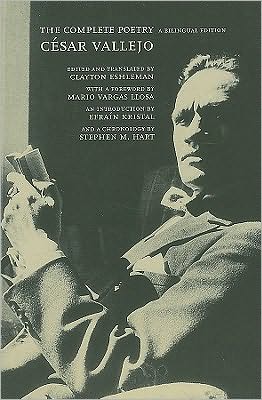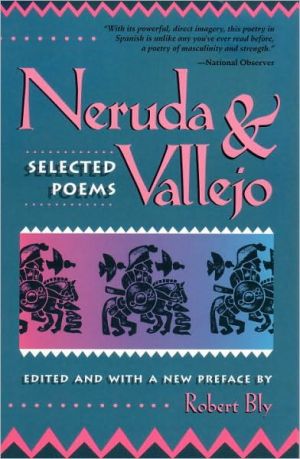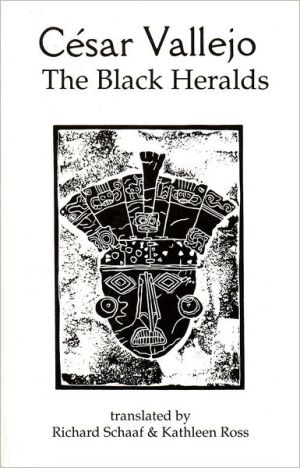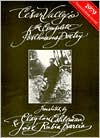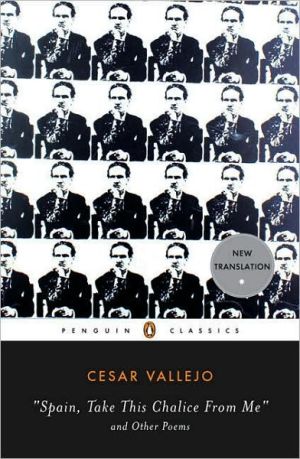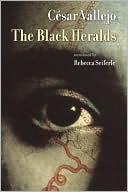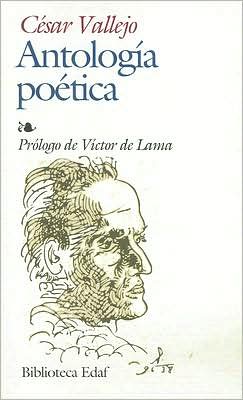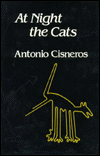The Complete Poetry: A Bilingual Edition
This first translation of the complete poetry of Peruvian César Vallejo (1892-1938) makes available to English speakers one of the greatest achievements of twentieth-century world poetry. Handsomely presented in facing-page Spanish and English, this volume, translated by National Book Award winner Clayton Eshleman, includes the groundbreaking collections The Black Heralds (1918), Trilce (1922), Human Poems (1939), and Spain, Take This Cup from Me (1939).\ Vallejo's poetry takes the Spanish...
Search in google:
"César Vallejo is the greatest Catholic poet since Dante—and by Catholic I mean universal."—Thomas Merton, author of The Seven Storey Mountain"An astonishing accomplishment. Eshleman's translation is writhing with energy."—Forrest Gander, author of Eye Against Eye"Vallejo has emerged for us as the greatest of the great South American poets—a crucial figure in the making of the total body of twentieth-century world poetry. In Clayton Eshleman's spectacular translation, now complete, this most tangled and most rewarding of poets comes at us full blast and no holds barred. A tribute to the power of the imagination as it manifests through language in a world where meaning has always to be fought for and, as here, retrieved against the odds."—Jerome Rothenberg, co-editor of Poems for the Millennium"Every great poet should be so lucky as to have a translator as gifted and heroic as Clayton Eshleman, who seems to have gotten inside Vallejo's poems and translated them from the inside out. The result is spectacular, or as one poem says, 'green and happy and dangerous.'"—Ron Padgett, translator of Complete Poems by Blaise Cendrars"César Vallejo was one of the essential poets of the twentieth century, a heartbreaking and groundbreaking writer, and this gathering of the many years of imaginative work by Clayton Eshleman is one of Vallejo's essential locations in the English tongue."—Robert Hass, former Poet Laureate of the United States"This is a crucially important translation of one of the poetic geniuses of the twentieth century." —William Rowe, author of Poets of Contemporary Latin America: History and the Inner Life"Only the dauntless perseverance and the love with which the translator has dedicated so many years of his life to this task can explain why the English version conveys, in all its boldness and vigor, the unmistakable voice of César Vallejo."—Mario Vargas LlosaPublishers WeeklyLess famous than Neruda or Lorca, the Peruvian Vallejo (1892-1938) may stand as their equal among the great Spanish language modernists. At times more demanding than both-and just as devoted to "eternal love," "animal purity" and "the absolute Encounter"-Vallejo has inspired devotion and imitation across continents. The lyrical, quotable poems of The Black Heralds (1918) record an intense young man's struggle with his Andean and Catholic heritage. Dense in its beauty, packed with neologisms, Trilce (1922) shows Vallejo at his strangest and most original: determined to forge a new language for the New World, the volume weaves together pellucid laments for the lost loves of childhood with "thrips and thrums from lupine heaps." The posthumous Human Poems (1939) mingle nostalgia, eroticism and rage as they follow the poet's years in Paris; the more conventional Spain, Take This Cup from Me (1939) records Vallejo's devotion to the Loyalist (left-wing, and losing) side of the Spanish Civil War and memorably mourns the fallen. Decades in the making, this faithful and forceful complete text from poet and essayist Eshleman (see page 40 for a review of his newest book of verse) deserves as much notice as any poetic translation can get. (Dec.) Copyright 2006 Reed Business Information.
Contents Foreword / Mario Vargas Llosa Acknowledgments Introduction / Efraín KristalLos heraldos negros —The Black Heralds Plafones ágiles — Agile Soffits Buzos — Divers De la tierra — Of the Earth Nostalgias imperiales — Imperial Nostalgias Truenos — Thunderclaps Canciones de hogar — Songs of Home Trilce Poemas humanos — Human Poems III España, aparta de mí este cáliz — Spain, Take This Cup from MeAfterword: A Translation Memoir Appendix: A Chronology of Vallejo's Life and Works / Stephen M. Hart Notes Bibliography Index of Spanish Titles and First Lines Index of English Titles and First Lines
\ Publishers WeeklyLess famous than Neruda or Lorca, the Peruvian Vallejo (1892-1938) may stand as their equal among the great Spanish language modernists. At times more demanding than both-and just as devoted to "eternal love," "animal purity" and "the absolute Encounter"-Vallejo has inspired devotion and imitation across continents. The lyrical, quotable poems of The Black Heralds (1918) record an intense young man's struggle with his Andean and Catholic heritage. Dense in its beauty, packed with neologisms, Trilce (1922) shows Vallejo at his strangest and most original: determined to forge a new language for the New World, the volume weaves together pellucid laments for the lost loves of childhood with "thrips and thrums from lupine heaps." The posthumous Human Poems (1939) mingle nostalgia, eroticism and rage as they follow the poet's years in Paris; the more conventional Spain, Take This Cup from Me (1939) records Vallejo's devotion to the Loyalist (left-wing, and losing) side of the Spanish Civil War and memorably mourns the fallen. Decades in the making, this faithful and forceful complete text from poet and essayist Eshleman (see page 40 for a review of his newest book of verse) deserves as much notice as any poetic translation can get. (Dec.) Copyright 2006 Reed Business Information.\ \
